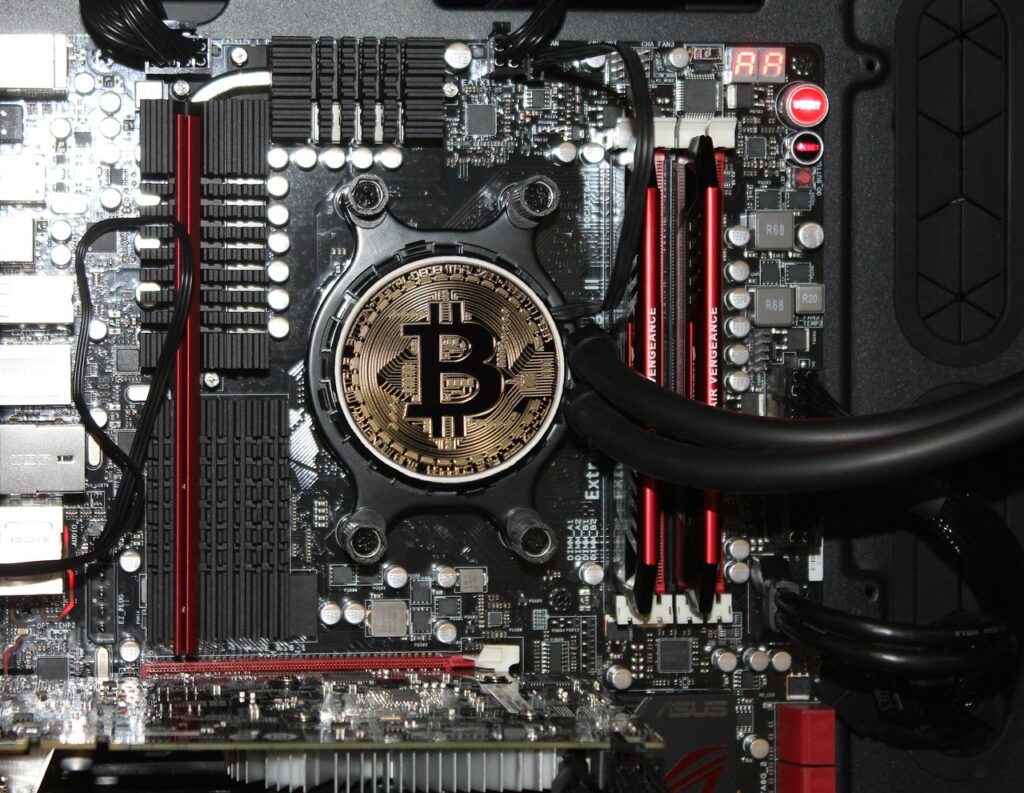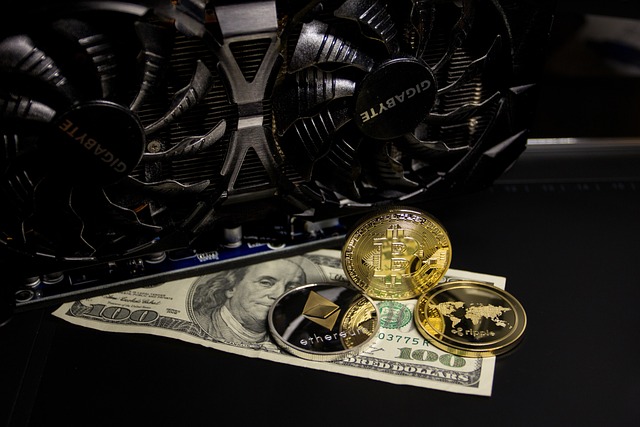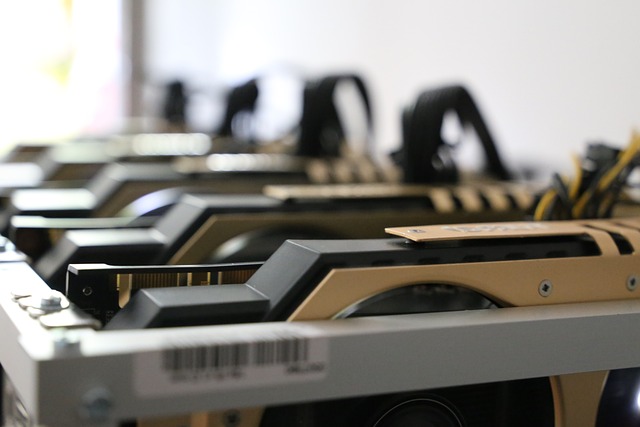Selecting the Best DeFi Platform: Key Considerations
Selecting the Best DeFi Platform: Key Considerations

Key Factors to Consider When Choosing a DeFi Platform
When choosing a DeFi platform, there are several key factors that you should consider.

Another crucial aspect to consider is the security measures of the DeFi platform. With the rising popularity of DeFi, the risk of hacks and security breaches has also increased. Therefore, it is vital to opt for a platform that implements robust security protocols and follows industry best practices. Your assets and investments should be well-protected, and you should have confidence in the platform’s ability to mitigate any potential risks. By assessing the security measures of a DeFi platform, you can make an informed decision and choose a platform that prioritizes the safety of your funds.
The Importance of Researching Different DeFi Platforms
Researching different DeFi platforms is a crucial step for anyone looking to venture into the decentralized finance space. With the rising popularity and growth of DeFi, it is important to understand the various options available and make informed decisions. By conducting thorough research, individuals can gain a better understanding of the features, functionalities, and security measures of different platforms. This allows them to assess which platform aligns best with their needs and preferences.
One of the primary reasons why researching different DeFi platforms is important is the security aspect. While DeFi offers exciting opportunities for financial transactions and investments, it is also vulnerable to security risks. By researching and understanding the security measures implemented by different platforms, users can mitigate the risks associated with potential hacks or scams. Additionally, individuals can evaluate the track record and reputation of platforms, considering any past security breaches or incidents. This knowledge will enable users to make more informed decisions and choose platforms with a solid security infrastructure in place.
Understanding the Security Measures of DeFi Platforms
When it comes to DeFi platforms, security should be a paramount consideration. With the rise in popularity of decentralized finance, the risks associated with using these platforms have also increased. As a user, it is crucial to understand the security measures implemented by DeFi platforms to protect your investments and personal information.
One of the key security measures to look for is the implementation of robust encryption protocols. DeFi platforms should prioritize the use of encryption methods such as SSL/TLS to secure data transmission between users and the platform. Additionally, platforms should have secure storage mechanisms in place to safeguard sensitive user information and private keys. By ensuring that encryption and secure storage are in place, DeFi platforms can greatly reduce the risk of data breaches and unauthorized access. It is also important to consider platforms that undergo regular security audits to identify and address any potential vulnerabilities. By conducting audits, DeFi platforms can assure users that their systems are continuously monitored and updated to mitigate any emerging threats.
Examining the Track Record and Reputation of DeFi Platforms
DeFi platforms have gained immense popularity in recent years, offering users the opportunity to engage in decentralized finance and earn attractive returns on their investments. However, it is crucial to thoroughly examine the track record and reputation of DeFi platforms before diving in. A platform’s track record provides valuable insights into its performance and history, allowing users to assess its stability and reliability.
One way to gauge the track record of a DeFi platform is by conducting thorough research and analyzing its past performance. Look for platforms that have consistently delivered positive results and have a strong reputation within the community. It is also important to investigate any past security breaches or instances of fraud that the platform may have experienced. This will help you determine the platform’s ability to protect your funds and ensure the safety of your investments. In addition, consider exploring online forums and communities to gain insights from other users and their experiences with the platform. Their feedback can provide valuable information that goes beyond what is mentioned on the platform’s official website. By scrutinizing the track record and reputation of DeFi platforms, users can make informed decisions and choose platforms that align with their financial goals and risk tolerance.
Analyzing the Available Features and Functionality of DeFi Platforms
DeFi platforms have gained significant attention in recent years due to their innovative features and functionality. When analyzing these platforms, it is important to carefully assess the available features and understand how they align with your investment goals. One key consideration is the range of lending and borrowing options provided by the platform. Some platforms offer a diverse selection of assets to lend or borrow, while others may have a more limited range. It’s important to evaluate which assets are available and whether they meet your investment needs.
Another aspect to consider when evaluating the features and functionality of DeFi platforms is the availability of decentralized exchanges (DEXs). These exchanges allow users to trade assets directly on the blockchain, without the need for intermediaries. A robust DEX can provide increased liquidity and reduce the reliance on centralized exchanges.

In conclusion, when analyzing the available features and functionality of DeFi platforms, it is crucial to evaluate the range of lending and borrowing options, the presence of decentralized exchanges, and the interoperability with other protocols. These factors will ultimately determine the platform’s suitability for your investment needs and contribute to a seamless and efficient DeFi experience.
Considering the User-Friendliness and User Experience of DeFi Platforms
When it comes to choosing a decentralized finance (DeFi) platform, one key factor to consider is the user-friendliness and overall user experience it offers. After all, you want to ensure that navigating the platform and its features is intuitive and hassle-free. A user-friendly DeFi platform should have a clean and easy-to-understand interface that allows users to seamlessly execute transactions, access data and analytics, and manage their funds. Additionally, it should provide clear instructions and guidance for beginners, as well as advanced functionalities for experienced users. By prioritizing user-friendliness, you can enhance your overall DeFi experience and make the most out of the platform.
Furthermore, a positive user experience plays a crucial role in building trust and credibility with a DeFi platform. The smoother and more enjoyable the user experience, the more likely users are to interact with the platform frequently and continue utilizing its services. A responsive and well-designed interface, combined with efficient customer support, can greatly contribute to a positive user experience. Additionally, features such as customizable dashboards, personalized notifications, and seamless integration with other applications can further enhance the overall usability and convenience of the platform. By considering the user-friendliness and user experience of a DeFi platform, you can ensure a more satisfying and productive journey in the world of decentralized finance.
Evaluating the Liquidity and Volume on DeFi Platforms
When it comes to choosing a DeFi platform, evaluating the liquidity and volume on these platforms is essential. Liquidity refers to the ability to buy or sell assets without significantly impacting their price. A platform with high liquidity means that there are enough buyers and sellers, making it easier to trade without causing drastic price fluctuations. On the other hand, low liquidity can result in wider bid-ask spreads and increased slippage, which may negatively impact your trading experience.
Volume, on the other hand, measures the total number of assets traded on a platform within a specific period. Higher trading volumes indicate a vibrant and active marketplace, where there is ample opportunity for price discovery and efficient trading. Platforms with low volume may have limited trading options and fewer participants, which could make it harder to buy or sell assets. Therefore, carefully assessing the liquidity and volume on different DeFi platforms can help you choose one that offers a seamless trading experience and better market conditions for your investment strategies.
Assessing the Fees and Costs Associated with DeFi Platforms
When it comes to assessing the fees and costs associated with DeFi platforms, it’s important to carefully consider the financial implications. While the decentralized nature of these platforms often leads to lower fees compared to traditional financial institutions, it doesn’t mean there aren’t any costs involved. Before diving into a particular DeFi platform, it’s crucial to understand the fee structure and how it aligns with your investment goals. Some platforms may charge transaction fees, withdrawal fees, or even network fees depending on the blockchain they operate on. It’s worth comparing these fees across different platforms to make an informed decision that suits your needs and budget.
In addition to fees, it’s also essential to consider any hidden costs that may arise when using DeFi platforms. While platforms may advertise nominal fees, there can be additional costs such as gas fees on Ethereum-based platforms that users need to be aware of. Moreover, some platforms may require users to hold specific tokens as collateral or for governance purposes, which could potentially create additional costs if users aren’t already in possession of those tokens. Understanding and factoring in these costs is crucial to avoid unexpected surprises and ensure that the overall financial benefits of using a DeFi platform align with your investment strategy.
Taking into Account the Supported Assets and Tokens on DeFi Platforms
When considering a decentralized finance (DeFi) platform, one important factor to take into account is the range of supported assets and tokens. Different platforms may have varying lists of supported assets, so it is crucial to evaluate whether the platform supports the specific assets you are interested in. Some platforms may have a wider selection of assets, including popular cryptocurrencies like Bitcoin and Ethereum, as well as various tokens and stablecoins. On the other hand, some platforms may have a more limited range of supported assets, catering to niche markets or specific use cases. Therefore, it is essential to verify whether the platform supports the assets you intend to trade, invest or interact with.
Furthermore, besides looking at the supported assets, it is equally important to evaluate the liquidity and trading volume that each asset receives on the DeFi platform.

Considering the Governance and Decision-Making Structure of DeFi Platforms
When considering the governance and decision-making structure of DeFi platforms, it is important to understand how these platforms are governed and who has a say in the decision-making process. Many DeFi platforms operate on a decentralized governance model, which means that decisions are made collectively by the platform’s users. This can be achieved through voting mechanisms or other forms of consensus-building.
One key advantage of decentralized governance is that it allows for a more democratic decision-making process, where all users have a voice in shaping the future of the platform. However, it also poses challenges in terms of scalability and efficiency, as reaching a consensus can be time-consuming and difficult. Therefore, it is crucial to assess the governance model of a DeFi platform and evaluate whether it aligns with your values and preferences. Additionally, it is important to consider how decisions are implemented and enforced, as this will impact the overall governance effectiveness of the platform.
What are some key factors to consider when choosing a DeFi platform?
Key factors to consider when choosing a DeFi platform include governance and decision-making structure, security measures, track record and reputation, available features and functionality, user-friendliness, liquidity and volume, fees and costs, and supported assets and tokens.
Why is it important to research different DeFi platforms?
Researching different DeFi platforms is important to understand their unique features, security measures, fees, and supported assets. It helps you make an informed decision and choose a platform that aligns with your needs and preferences.
What security measures should I look for in a DeFi platform?
Look for DeFi platforms that implement robust security measures such as multi-factor authentication, encryption, auditability, and smart contract security audits. These measures help protect your funds and minimize the risk of hacks and security breaches.
How can I examine the track record and reputation of a DeFi platform?
You can examine the track record and reputation of a DeFi platform by researching its history, checking user reviews and feedback, and looking for any past security incidents or breaches. It’s also helpful to see if the platform has partnerships or endorsements from reputable organizations.
What features and functionality should I analyze when considering a DeFi platform?
When analyzing the features and functionality of a DeFi platform, look for factors such as trading options, lending and borrowing capabilities, yield farming opportunities, staking rewards, and integration with other platforms or protocols. Consider which features are important to you and align with your investment goals.
Why is user-friendliness and user experience important in a DeFi platform?
User-friendliness and user experience are important in a DeFi platform because they determine how easy it is for you to navigate and use the platform. A user-friendly platform with a great user experience can enhance your overall experience and make it more convenient to manage your investments.
How can I evaluate the liquidity and volume on a DeFi platform?
You can evaluate the liquidity and volume on a DeFi platform by checking its trading volume, the number of active users, and the depth of its order books. Higher liquidity and volume generally indicate a more active and liquid market, making it easier for you to buy or sell assets.
What fees and costs should I consider when choosing a DeFi platform?
When choosing a DeFi platform, consider factors such as transaction fees, withdrawal fees, deposit fees, and any additional costs associated with using the platform. These fees and costs can vary significantly between platforms, so it’s important to understand them before making a decision.
Why is it important to consider the supported assets and tokens on a DeFi platform?
Considering the supported assets and tokens on a DeFi platform is important because it determines the range of investment opportunities available to you. Make sure the platform supports the assets and tokens you’re interested in trading or investing in.
What should I consider about the governance and decision-making structure of a DeFi platform?
The governance and decision-making structure of a DeFi platform can impact its future development, decision-making processes, and the involvement of platform users. Consider whether the platform has a decentralized governance model, community voting mechanisms, or other forms of user participation that align with your preferences for transparency and influence.
Todays Featured Product:
Buy, exchange and grow your crypto securely with a Ledger hardware wallet, combined with the Ledger Live app. It’s never been easier to keep your crypto safe and accessible. Buy direct from Ledger.com and get todays Special Offers Here.




